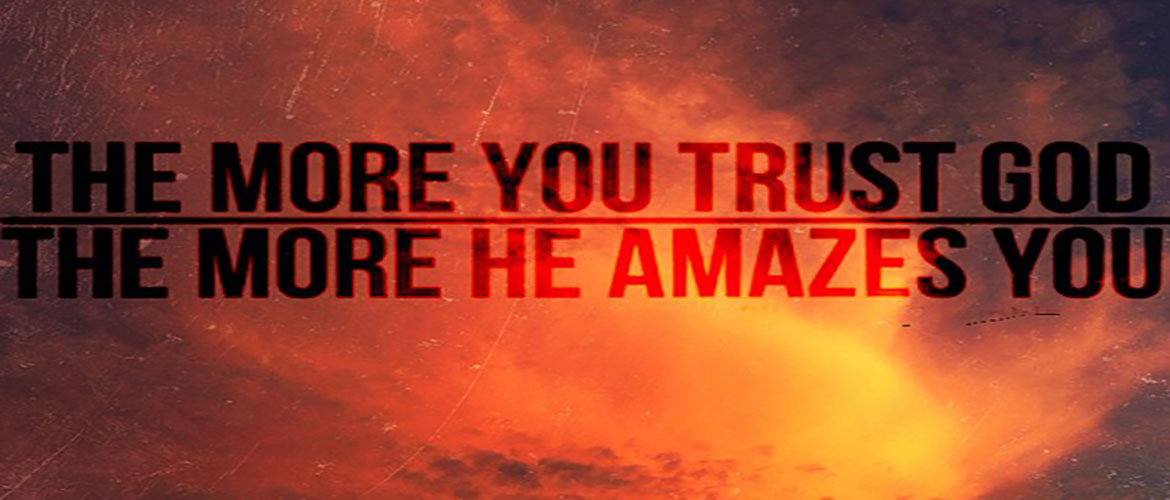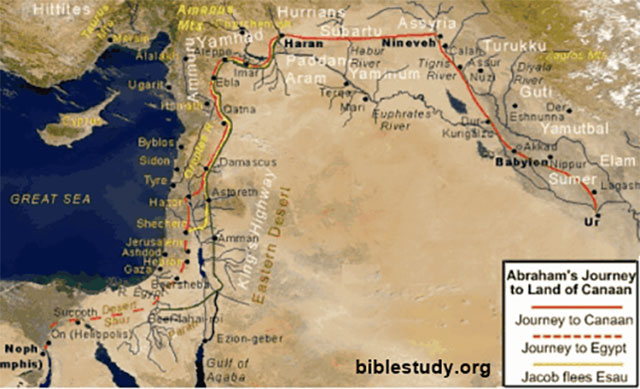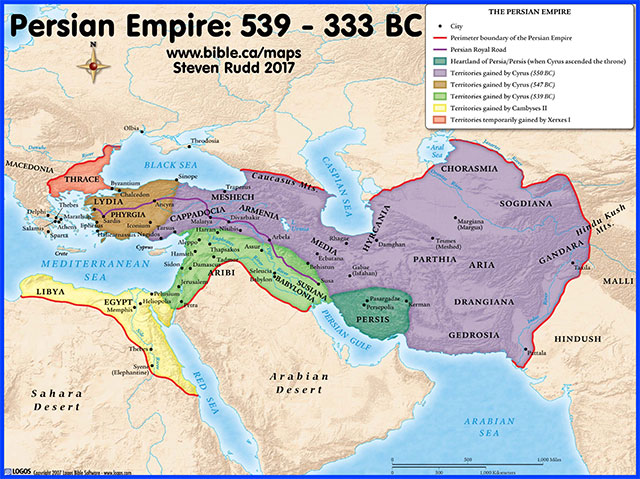
Hello my “Walking with Jesus” friends around the world on this Thursday,
When you look back through your family tree, do you see some extended family who simply didn’t get along? Maybe you even know of siblings who were more enemies than friends or family? Sadly that’s part of the dark side of our human race isn’t it? And family squabbles can turn into family battles which can develop into family wars that can last for generations, isn’t that true?
Join me today, in Malachi 1:2-5 in the Bible, as God helps us think about this in the history of Israel. Yesterday we looked at the opening statement of God to His people in Jerusalem in about 420bc or so. “I have loved you,” says the LORD. But you ask, ‘How have You loved us?” Now what God says next through the prophet Malachi, we need to be careful with…
“Was not Esau Jacob’s brother?’ declares the LORD. ‘Yet I have loved Jacob, but Esau I have hated (not chosen) and I have turned his hill country into a wasteland and left his inheritance to the desert jackals.” (Malachi 1:3) Now that sounds harsh and not at all like the God of verse one who reminds us of His love. So what does it mean?
You may recall God began the miracle nation of Israel by selecting one man, Abram and his wife Sarai, to whom God later gave the names Abraham and Sarah, as you see in Genesis 17. God invited them to join Him in the adventure of beginning a new miracle nation of people even though they were old and had no children. He also promised to bless their descendants with their own land, but that would require them leaving what had been home, the city of Ur in the modern day country of Iraq, traveling almost 1500 miles via the long route, to a new land that He would provide to them. That land was at that time known as Canaan, today modern day Israel.
Their story begins in Genesis 12. It is a story of continual TRUST in God. Over and over their trust was tested.

Abram and Sarai did follow God’s lead, trusting that God would do what He promised, even though they knew no one who knew this God, and they couldn’t imagine HOW God could accomplish His promises.
The Apostle Paul takes almost all of Romans 4 to explain the importance of this trust Abram had in God. Abram & Sarai were pioneers, both in getting to know the One, True, Almighty, Creator God, and in living their lives following God’s promises and His guidance. God did bless them in their old age, with a miracle son Isaac, who as an adult married Rebekah, not knowing she was infertile, unable to continue the miracle family line. But miraculously God opened Rebekah’s womb, as He had opened Sarah’s womb, and Rebekah bore twins, Jacob and Esau.
Genesis 25 gives us the story of this family of four, which like too many families was a divided household. Isaac preferred his son Esau, Rebekah preferred her son Jacob, and the boys knew it. Rivalry grew between the boys and one day Esau, hungry from all day out hunting, gave up his oldest son birthright to his younger brother Jacob, for a meal! Genesis 25:34 says “So Esau despised his brother Jacob.”
Things went from bad to worse between these brothers and their parents and finally mother Rebekah warned son Jacob he’d better move out and move far away before his brother Esau might kill him. Jacob did that, and along the road he had an encounter with God (Genesis 28) who explained to Jacob that the promise of land and a favored nation of people which God had promised his grandfather Abraham, and then later his miracle father Isaac, would also be continued as God’s promise to Jacob and his descendants. There’s something special happening here. It’s the bloodline of promise down through the generations.

Malachi was God’s last prophet to God’s people Israel, speaking in Jerusalem about 420bc, shortly after Ezra and Nehemiah had completed their work of challenging God’s people, during the global reign of the Persian kingdom.
Have you ever tried to help God accomplish His promise? God’s original promise of a miracle nation was made to Abraham more than 1500 years before Malachi’s messages. You may know 13 years before miracle son Isaac was born, Sarai, in her frustration that she was still barren and God had not made good on His promise of children, came up with a plan. Sarai offered her servant Hagar to be a surrogate mother and produce a child with Abram, since Sarai thought it could be a good answer to God’s promise. Genesis 16 tells us that ugly story.
The lesson is simple yet profound: God will always make good on His promises, and He doesn’t need our interference. In fact our impatience usually complicates things. Hagar’s son, Ishmael, was not the son God promised. Isaac, born 13 years after Ishmael, was the promised miracle son, born to old Abraham and Sarah. But Ishmael’s presence really complicated that family and the complications continued down through Isaac and Rebekah, Jacob and Esau. Maybe you know a family where similar mistakes have really complicated things.
In some translations of the Bible Malachi 1:3 says: “I have loved Jacob but Esau I have hated…” Words are important, and that’s an unfortunate use of the word “hate”. A much better translation is the idea that God chose Jacob for the continuation of the miraculous bloodline of promise, rather than Esau, for reasons known only to God. Esau did grow up and married and a large nation of people come from him known many centuries ago as the “Edomites” and they occupied the land area southeast of Jordan in what is today Saudi Arabia.
Jacob had fled north to the city of Harran where Abram and Sarai had spent some time many years before, when they first began their trek following God, and where Jacob’s great grandfather Terah had died. (Gen. 11:27-32) There Jacob, through a complicated story, ended up with two wives Leah and Rachel. They were sisters. Amazingly they both were infertile and so they did as Sarai had done, and both offered their servant young women to be surrogate mothers and produce children for them. Eventually God opened their wombs so Jacob ended up with four wives and 12 sons, and one daughter!!
God then changed Jacob’s name to “Israel” (Genesis 32:27,28) and thus the descendants who came from those 12 sons were called “the twelve tribes or the children of Israel”!
The miracle bloodline which began with God’s promise to Abraham flowed through his miracle son Isaac to Jacob and through Jacob to his 12 sons and God’s promised miracle nation of Israel!
True to God’s love and His promises both Ishmael and Esau were blessed with large families also, but the distinction is that “God’s Chosen People”, as God referred to them when they escaped Egypt and met with Him at Mount Sinai, (Exodus 19) are the descendants of Abraham, Isaac, Jacob and his sons. So you see my friends, it’s not at all that God ‘hated’ Ishmael or Esau, it’s that God’s miracle lineage flowed singularly from Abraham through Isaac through Jacob to the 12 sons who became 12 tribes of the Jewish people.
God’s purpose was to raise up a unique, miracle nation of people who would honor Him with their love and live their lives in obedience to His instructions to be a people holy unto the LORD.

The contrast between those people with other people living far apart from God, who do not know God nor seek to honor God with their lives, should be obvious. The relationship between God and His chosen people was intended to draw the attention and desire of all other peoples of the world to experience that same relationship and thus turn from their idols to Jehovah God, the God of Abraham, Isaac, Jacob and the ‘children of Israel’.
An understanding of the difference between God’s blessing and God’s wrath or punishment for sin was also to be evident in the contrast of peoples. That is why Malachi writes “They will be called the Wicked Land, a people always under the wrath of the LORD. You will see it with your own eyes and say, ‘Great is the LORD – even beyond the borders of Israel.” (Mal. 1:4,5)
Malachi’s message was intended to stun the people of Israel into considering how fortunate they were to have been born into the miracle family of God’s blessing, yet they were living no different from the peoples all around them who did not know God. So I invite you to ponder that today.
The Apostle Peter wrote to the Christians scattered across the Roman empire in the first century: “You are a chosen people, a royal priesthood a holy nation, a people belonging to God, that you may declare the praises of Him who called you out of darkness and into His wonderful light….Live such good lives among the pagans that though they may accuse you of doing wrong, they may see your good deeds and glorify God…” (1 Peter 2:9-12)
In closing today, let’s do what Malachi was urging the people to do. Look around your part of the world. Yesterday I invited you to look for the evidence of God’s great love toward us, the human race. Today I ask you to look to see if there is a distinguishable contrast between those people whose lives have been transformed by the power of a love relationship with God, the rescue of Jesus Christ from their sin, and the presence of the Holy Spirit of God within them… and those people all around who are living in the darkness of our morally decadent world?
All through Malachi’s message, he’s going to call us to evaluate the contrast and look at ourselves in the process.
Is the contrast seen in us? Are we pointing our world to God, and the difference He can make in our lives, as we trust Jesus Christ to be our Savior? Now ponder that today my friends, as you and I walk through this day with Jesus.
Bible images provided with attribution to www.LumoProject.com.
Have a comment or question about today’s chapter? I’m ready to hear from you, contact me here.

Pastor Doug Anderson 262.441.8785
“Let us run with perseverance the race marked out for us, with our eyes fixed on Jesus…” (Heb. 12:1,2)
Archived back issues of “Walking with Jesus” and other resources are available by clicking here to open our ‘home page’ (or go to HOME at upper right of this page).
Share with friends. Subscribe below for daily “Walking with Jesus”.
Facebook
Twitter
LinkedIn
Pinterest
Email
WhatsApp


